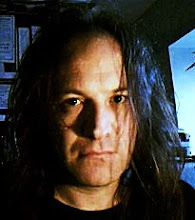tract vie
One problem, or drawback, with music-making - as against, say, film-making, to make the point - is that it is immediately and in fact intrinsically, as an activity, as a discipline, rarefied, somewhat removed, even artificial, enclosed, in and of itself. Music-making, that is to say, cannot help but be so. The musical situation - that array of possibilities and attitudes with which or within which music-makers must conjur, and in some fundamental, value-promoting way, have to deal, as dictated by ontology itself - works in favour of removing musical events from verity, from - that is - forms of social realism abundantly-available and seemingly natural to film-makers, being well-rehearsed, ratified within what is possible with film and possible for film-makers to produce. Leaving aside the vaguaries and intersubjectivity of the personel tastes of producers of either genre - which should be defended both, grandly, in terms of individual personel freedom and, on behalf of aesthetics, as a device for variety and change - verity in cinema seems, generally, to sit well enough so as to add to the vitality of cinema itself. In music, however - and in direct contrast - the introduction of, in essence, meaningful narrative, didacticism that is, tends at once to rob music of what might be called purity. This manifests itself as a crime against ontology itself; given that the resulting collision is immediately readible as a hybrid, of something which appears appropriate to music and something which appears otherwise. This suggests that the foreign form - literature in essence - has an overarching, intrusive effect, and that, moreover, ontology itself is changed, even diluted, even undermined. Thus, there is music as a statement upon purity, ontological integrity - a kind of rarefied singularity. Thus, if one conjoins this with words, one gets, by dint of that conjoining, hybrid forms which are only partly music. Here lies opera, vocal pop music. The same kinds of introductions into film-making do not tend to suggest as clearly that the result is cinema plus something else; the same conjoinings do not, that is, tend to take cinema away from cinema. In short, such strategies tend to strengthen cinema, to add convincingly and directly to its particular ontology. The result there, then, is not so much a hybrid as an addition - centrally, squarely - to the variety of cinema itself. In music, this basic fact - in being seemingly marked by a call toward and an attachment to purity of form, with its rigid demarcations and reliance upon quintessence - allows followers of all such persuasions, and indeed any interested and informed others, to infer value-judgements upon their particular proclivity. But the claim of purism can only reasonably be made by those insistent enough upon music as music. The result is inevitably, then, rarefied, self-regarding, internal, somewhat hermetic, even inbred, solipsistic. Yet, these formulations, curiously - but interestingly - lose their otherwise negative slant and are, in relation to music, nothing short of reborn as pointers to music as, in some defensible and non-distastful way, higher in being pure, truer to itself. This, it seems, is because, as is often argued, music itself is intrinsically abstract. The upshot of this determination then can be expressed as: verity in music is music as music.


1 Comments:
www0723
burberry outlet
burberry outlet
fitflops
kyrie 4
mulberry handbags
football shirts
coach outlet
salomon shoes
nobis outlet
canada goose jackets
Post a Comment
<< Home